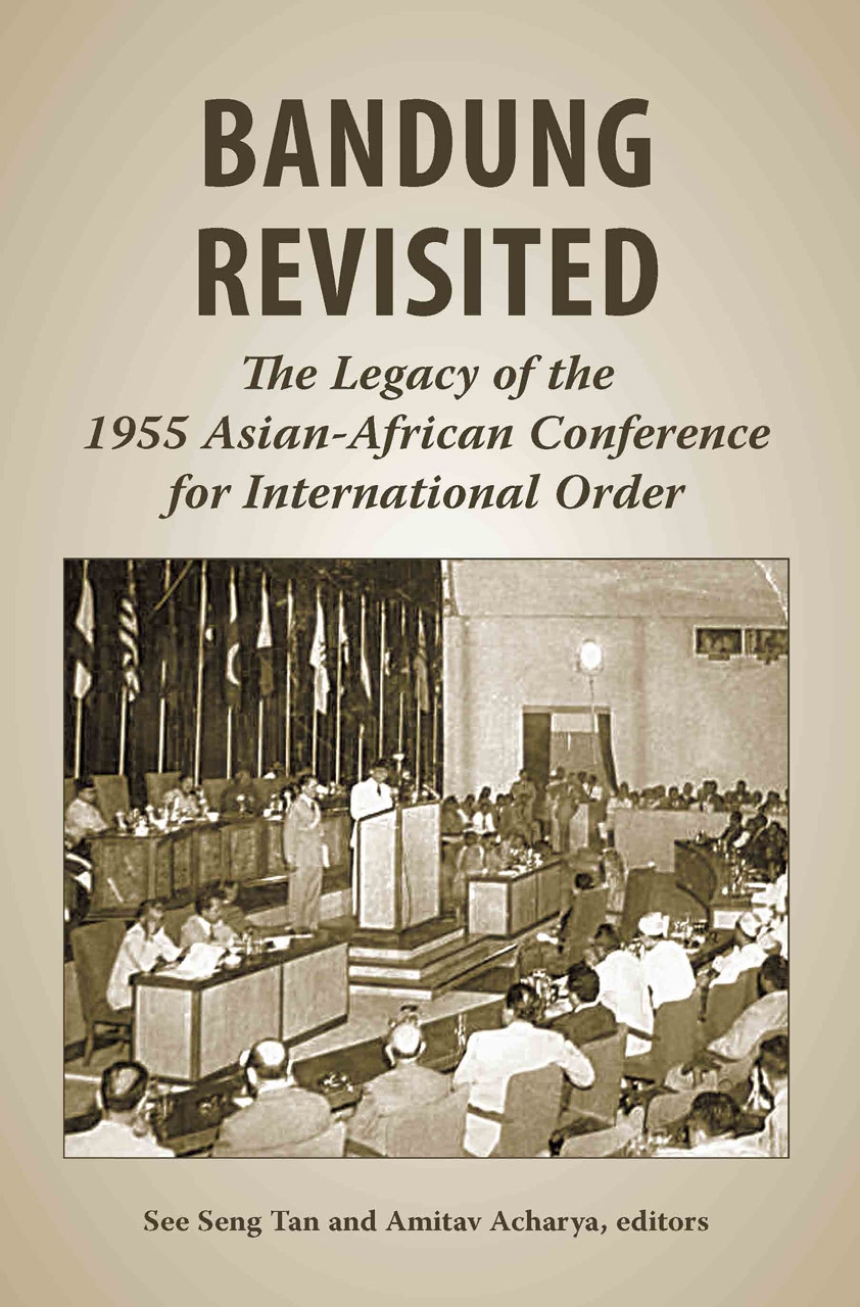National University of Singapore Press
Bandung Revisited
The Legacy of the 1955 Asian-African Conference for International Order
9789971693930
Distributed for National University of Singapore Press
Bandung Revisited
The Legacy of the 1955 Asian-African Conference for International Order
The 1955 Asia-Africa conference (the “Bandung Conference”) was a meeting of 29 Asian and African nations that sought to draw on Asian and African nationalism and religious traditions to forge a new international order that was neither communist nor capitalist, and led six years later to the non-aligned movement. Few would dispute the notion that the inaugural meeting in 1955 was a watershed in international history, but there is much disagreement about its long-term legacy and its significance for present-day international affairs. Was it a post-colonial ideological reaction to the passing of the age of empire or an innovative effort to promote a new regionalism? Were its principles of peaceful coexistence a rhetorical flourish or a substantive policy initiative? Did the Conference help define North-South relations? And in what way did the Conference contribute to the regional order of contemporary Asia?
The authors in the present volume argue that the Bandung Conference had a lasting normative influence on the contemporary regional order of Asia, and that it underlies the diplomatic principles and loosely defined normative framework that characterize present-day Asian international relations.
The authors in the present volume argue that the Bandung Conference had a lasting normative influence on the contemporary regional order of Asia, and that it underlies the diplomatic principles and loosely defined normative framework that characterize present-day Asian international relations.
248 pages | 6 x 9 | © 2008
Asian Studies: Southeast Asia and Australia
History: African History, Asian History
Political Science: Diplomacy, Foreign Policy, and International Relations
Table of Contents
Contributors
Preface
Introduction: The Normative Relevance of the Bandung Conference for Contemporary Asian and International Order
Amitav Acharya and See Seng Tan
Part I
1. The Bandung Conference and Southeast Asian Regionalism
Anthony Reid
2. The Bandung Conference and the Cold War International History of Southeast Asia
Ang Cheng Guan
3. Bandung and State Formation in Post-colonial Asia
Itty Abraham
4. Bandung and the Political Economy of North-South Relations: Sowing the Seeds for Re- visioning International Society
Helen E.S. Nesadurai
Part II
5. From Bandung to Durban: Whither the Afro-Asian Coalition?
Adekeye Adebajo
6. China and the Bandung Conference: Changing Perceptions and Representations
Chen Jian
7. Appraising the Legacy of Bandung: A View from India
Rahul Mukherji
8. Indonesia and the Bandung Conference: Then and Now
Dewi Fortuna Anwar
9. Bandung 1955 and Washington’s Southeast Asia
Michael J. Montesano
Index
Preface
Introduction: The Normative Relevance of the Bandung Conference for Contemporary Asian and International Order
Amitav Acharya and See Seng Tan
Part I
1. The Bandung Conference and Southeast Asian Regionalism
Anthony Reid
2. The Bandung Conference and the Cold War International History of Southeast Asia
Ang Cheng Guan
3. Bandung and State Formation in Post-colonial Asia
Itty Abraham
4. Bandung and the Political Economy of North-South Relations: Sowing the Seeds for Re- visioning International Society
Helen E.S. Nesadurai
Part II
5. From Bandung to Durban: Whither the Afro-Asian Coalition?
Adekeye Adebajo
6. China and the Bandung Conference: Changing Perceptions and Representations
Chen Jian
7. Appraising the Legacy of Bandung: A View from India
Rahul Mukherji
8. Indonesia and the Bandung Conference: Then and Now
Dewi Fortuna Anwar
9. Bandung 1955 and Washington’s Southeast Asia
Michael J. Montesano
Index

